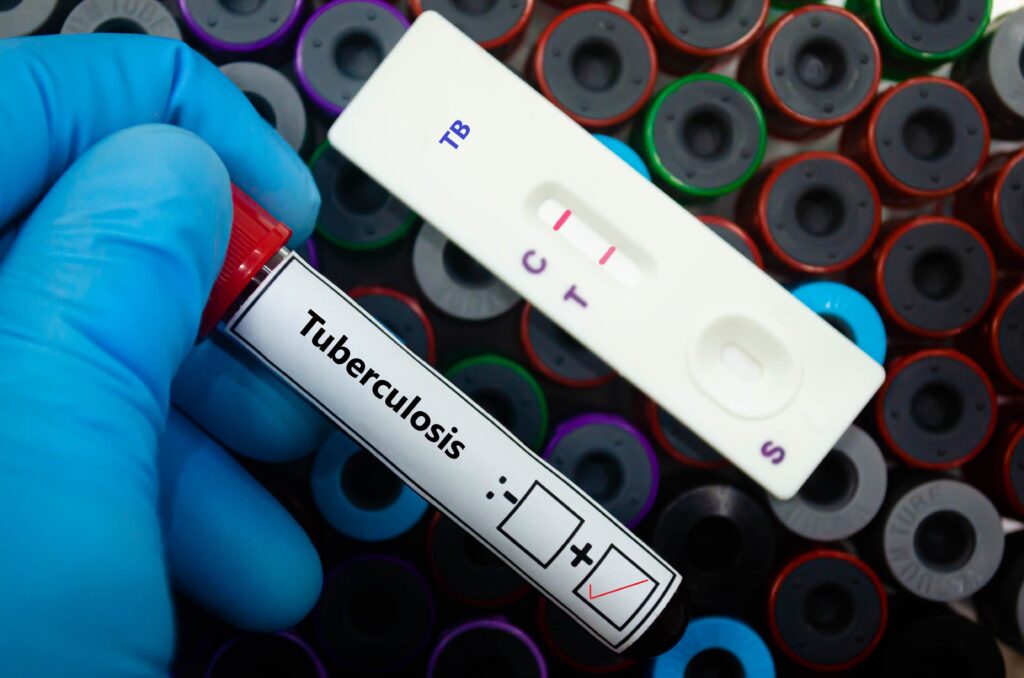
Tuberculosis (TB) remains a significant global health challenge, affecting 10.8 million people in 2023. That’s an increase from 10.6 million in 2021, with the most recent data showing that TB caused 1.25 million deaths last year. However, there is hope on the horizon, as a late-stage clinical trial for a new TB vaccine is underway.
What is Tuberculosis?
Tuberculosis is an infectious airborne lung disease caused by the bacterium Mycobacterium tuberculosis. It is transmitted through

droplets when an infected person coughs or sneezes.
TB is a global health concern, and in countries with high TB rates, South America, Africa, Asia, Eastern Europe, and Russia, infants are administered the Bacillus Calmette-Guérin (BCG) vaccine. There’s also a TB/HIV connection. People with HIV are 16 times more likely to develop tuberculosis than those without it, and in 2023, TB was the leading cause of death among people with HIV, resulting in 161,000 fatalities.
The BCG vaccine’s effectiveness tends to diminish over time, leaving adults vulnerable to contracting the disease. Even when the vaccine is effective, the results are inconsistent, so it does not provide reliable immunity.
TB is often linked to poverty, and in high-burden countries like South Africa, factors like poor nutrition and overcrowded living conditions increase the risk of infection. Until recently, the US has remained largely unaffected by TB. According to the Centers for Disease Control and Prevention (CDC), over 10,300 cases of TB were reported in the US last year. That is an 8% increase from 2023; the highest it has been since 2011.
A TB outbreak in Kansas City, Kansas, has been ongoing since January 2024. Kansas City is currently reporting 68 active cases and 85 latent cases across two counties since the start of the outbreak. According to Johns Hopkins School of Public Health, tuberculosis outbreaks can indicate a weak public health infrastructure. Socioeconomic disparities, like those in some Black communities, can make it more difficult for vulnerable populations to receive timely diagnosis and treatment. Researchers continue to seek improved methods to control tuberculosis.
For One Black Researcher, a TB Vaccine is Personal
The vaccine M72/AS01E, which is currently sponsored by the Gates Medical Research Institute (Gates MRI), showed a 50 percent efficacy rate in reducing pulmonary TB in adults with latent TB during its Phase 2b trial. The trial aims to prevent those already affected with latent TB—infected but not symptomatic or infectious—from developing pulmonary TB.
Dr. Alemnew Dagnew, the Black researcher leading the clinical development of M72 at Gates MRI, explained the domino effect this disease has on the community. “TB affects people of poor socioeconomic status. If a family member gets sick with TB, then they would have to stop working. If that family member is the only source of income, the whole family will be in a bad situation.”
Dagnew was born and raised in Ethiopia, a TB high-burden country. He has seen the devastating impact TB has on families and communities. “Developing a vaccine like the one which I’m currently working on, [if successful], is going to be like a gift to the community that I came from,” he explained.
According to Health Policy Watch, the trial has already recruited 90 percent of the 20,000 people it needs and is currently one year ahead of schedule; researchers initially thought it would take two years to fulfill their enrollment requirements. The trial will end once 110 people develop pulmonary TB, at which point researchers will have compiled enough data to analyze the effectiveness of the vaccine.
Phase three trials are currently being administered in 54 locations across five countries: Kenya, Malawi, South Africa, Zambia, and Indonesia. Researchers are hopeful that, should the vaccine continue to be effective, M72/AS01E could be the first new TB vaccine to prevent pulmonary TB for children and adults since 1921.









